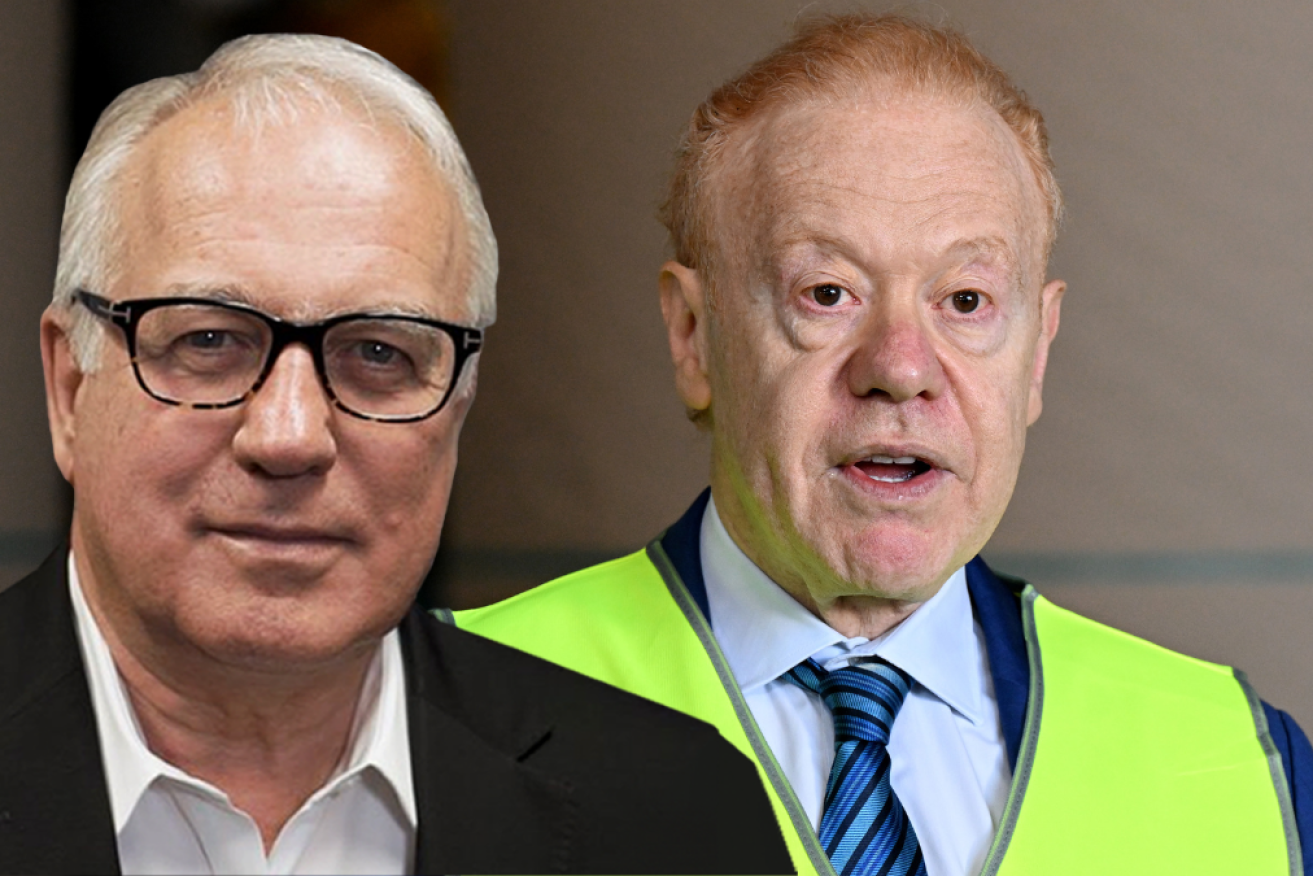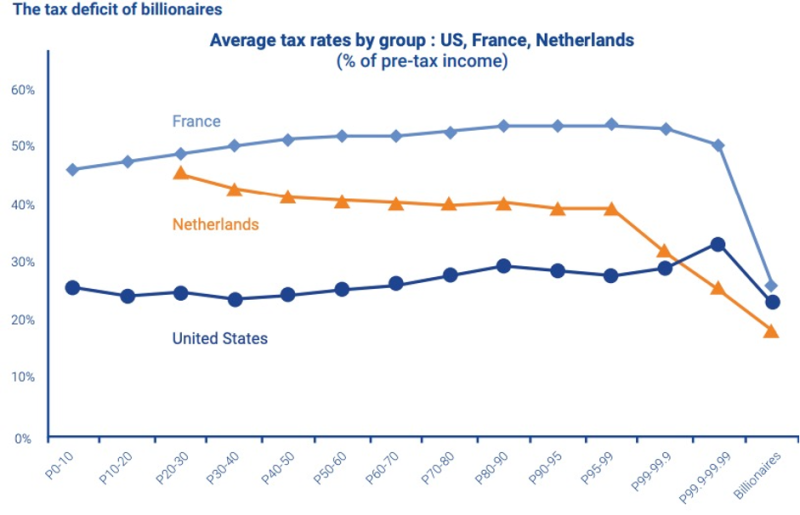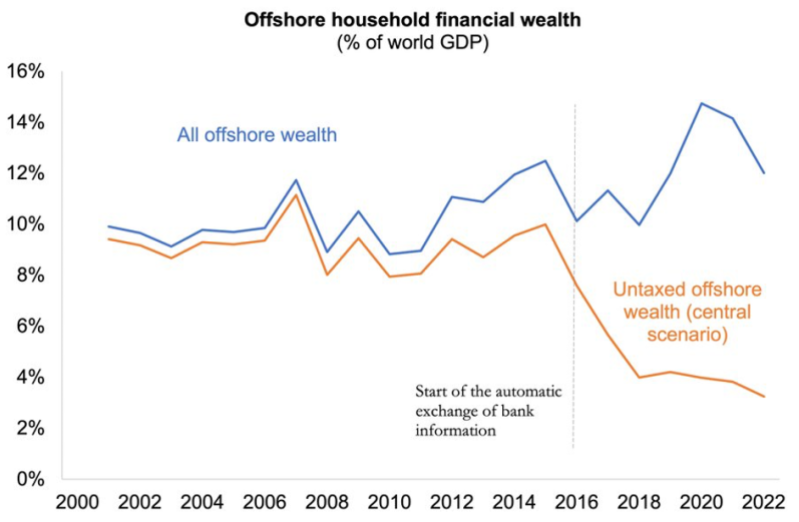Alan Kohler: Make billionaires and multinationals pay more tax? I’d like to see that


A tax on billionaires sounds great, but it might have unwanted consequences, writes Alan Kohler. Photo: TND/AAP
OPINION
Anthony Pratt says his superpower is that he’s rich.
(He was suggesting, in tape recordings published this week by Nine Entertainment, that this made him useful to Prince Charles, now King.)
How useful he was to the man who would be King is unknown, but his superpower has a more practical use – like most billionaires, he doesn’t have to pay much tax. That’s because the rich are useful to those with genuine political or monarchic power, not just figureheads, and vice versa.
The EU Tax Observatory’s inaugural global tax evasion report released this week puts the number of billionaires in the world at 2576. They are worth $US12.9 trillion collectively and currently pay $44 billion in tax, which is 0.3 per cent of their wealth.
This is meant to look bad, and so it does, except that only seven countries have a wealth tax, and their rates are mostly not much more than that.
Income taxes paid by billionaires, as opposed to wealth taxes, appear to be higher, although these are not detailed or added up in the report except for France, the Netherlands and the United States, on this chart:

Source: EU Tax Observatory
The horizontal axis is deciles of income and the point being made is that once you go above 99.9 per cent of incomes (that is, the billionaires) the tax system switches from progressive to regressive: The richer you are, the less tax you pay as a percentage of your income.
The fact that they’re paying tax of 20 to 25 per cent of income is a lot more than I expected, to be honest, but it’s meaningless.
I suspect, but don’t know for sure, that most billionaires have very little taxable income because they don’t need much, especially compared to their wealth. The money tends to stay in their companies and/or trusts so most of their living expenses are met by the company.
To get more money out of billionaires, the EU Tax Observatory proposes a global 2 per cent personal wealth tax on them, which would raise $US214 billion, $US170 billion more than they pay now.
Only billionaires? The authors explain: “As a matter of logic there is no reason to subject only billionaires to it: Ideally one would want a minimum tax that ensures all wealthy people (including centimillionaires and decamillionaires) pay a minimum amount relative to their wealth.
“One virtue of starting with billionaires is that this small group of individuals is quite visible, making it relatively easy to implement the tax.”
I’m sorry, but while the idea is laudable, it’s laughable.
Yes, the billionaires are visible, but they have a superpower that makes them useful to political power, as Anthony Pratt pointed out to someone about Prince Charles, which means very few countries are going to tax them 2 per cent of their wealth.
Pratt’s wealth is $14.6 billion. Is Anthony Albanese going to send him an annual invoice for $292 million, payable in 30 days please? Or Gina Rinehart for $800 million? Er, no.
Most countries don’t have a wealth tax because the billionaires run the place. Apart from that it’s almost impossible to value assets held by private companies.
A wealth tax would lead to a stampede of billionaires out of public companies that are valued on the stock exchange every day, which would probably lead to a collapse of global sharemarkets.
So while a wealth tax that discriminated against billionaires would be delicious, and a boost to government budgets that have been hollowed out by the pandemic, it won’t happen.
That’s not to say tax evasion by the wealthy is inevitable, or that it should be untouchable, or acceptable. As Joseph Stiglitz says in the foreword to the EU Tax Observatory report, it is the result of policy choices – or the failure to make policy choices that act to stop it.
It’s not all bad news. The report says the automatic exchange of bank information from 2015 has reduced the amount of money in tax havens from 9 per cent of world GDP to 3 to 4 per cent:

Source: EU Tax Observatory
But loopholes remain in that system: Some banks don’t comply and some assets are excluded. A co-author of the report, Gabriel Zucman, is calling for a global asset registry to help deal with it.
The main problem of tax evasion is multinationals shifting profits to low-taxing countries, especially the modern digital corporations whose operations can be located anywhere.
In 2021, 140 countries agreed to apply a 15 per cent minimum tax on multinational companies, but it has turned into Swiss cheese – full of loopholes – which have cut the expected revenue in half.
The EU Tax Observatory report’s key recommendation, apart from the 2 per cent wealth tax on billionaires, is to increase the minimum multinational tax to 25 per cent and remove the loopholes.
Anticipating an absence of agreement on that idea, the report’s authors suggest that unanimity is not necessary: “Insisting on unanimity from the get-go severely limits the realm of possibilities.
“Instead, recent history shows how unilateral action (or multilateral action by a leading group of countries) can pave the way for eventually nearly global agreements.”
For example, America’s adoption of the Foreign Account Tax Compliance Act in 2010 led to the global adoption of the Common Reporting Standard in 2014. More recently, unilateral digital service taxes in Europe in the late 2010s led eventually to the global minimum tax of 15 per cent on multinational profits.
Maybe a better way to go would be for politicians to stop finding billionaires and multinationals useful, and to stop being useful for them.
Anthony Albanese and other national leaders should carry a little book with them of the taxes paid by those who ask to meet them, and ask for favours, or who invite them to parties.
If they’re not paying their share, just say no.
Alan Kohler writes twice a week for The New Daily. He is finance presenter on ABC News and founder of Eureka Report








